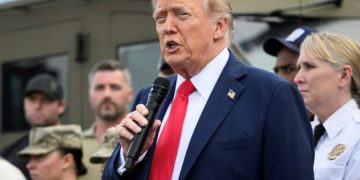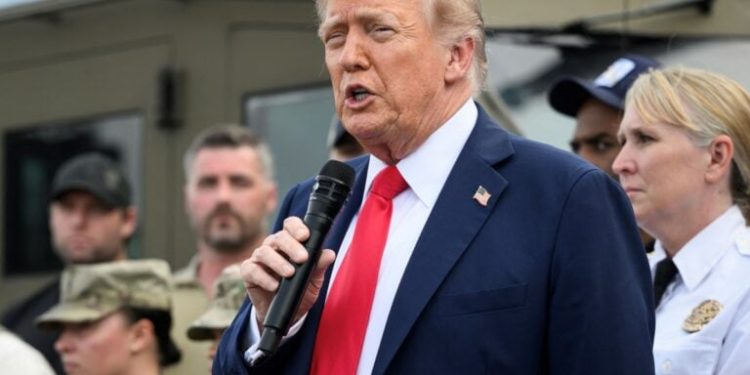The United States military has reportedly developed several contingency plans for possible airstrikes in Nigeria after President Donald Trump instructed the Pentagon to “prepare to intervene” to safeguard Christians from terrorist attacks, according to a report by The New York Times.
The publication revealed that the U.S. Africa Command (AFRICOM) presented multiple operational strategies to the Department of War in response to an order from Secretary Pete Hegseth to create options aligned with Trump’s directive.
Sources familiar with the discussions said the proposals—classified as “heavy,” “medium,” and “light”—outlined different levels of potential engagement in Nigeria.
Under the “heavy” approach, Washington would deploy an aircraft carrier strike group to the Gulf of Guinea, supported by fighter jets or long-range bombers capable of targeting insurgent strongholds in northern Nigeria.
The “medium” plan would involve using MQ-9 Reaper and MQ-1 Predator drones to conduct precision strikes on terrorist camps, vehicles, and convoys, guided by U.S. intelligence for accuracy and timeliness.
Meanwhile, the “light” option centers on intelligence sharing, logistical coordination, and joint operations with Nigerian security forces against Boko Haram and other extremist groups blamed for mass killings, kidnappings, and church attacks.
However, top U.S. defense officials reportedly acknowledged that limited drone or airstrike operations would not end Nigeria’s prolonged insurgency unless supported by a large-scale campaign similar to those in Iraq or Afghanistan—an approach that Washington is not currently considering.
Earlier, PUNCH Online reported Trump’s threat to send American troops to Nigeria if what he called the “genocide against Christians” continued. The Nigerian government under President Bola Tinubu dismissed the claim, calling it baseless.
In a related development, China expressed support for Nigeria on Tuesday, opposing any external interference disguised as concern for religion or human rights.
“As Nigeria’s strategic partner, China firmly rejects any attempt by foreign nations to interfere in other countries’ domestic affairs under the pretext of religion or human rights, or to threaten them with sanctions and military force,” said Chinese Foreign Ministry spokesperson Mao Ning during a press briefing in Beijing.
Responding to questions about Trump’s remarks, the Nigerian government reiterated on Wednesday that the country does not face religious persecution but rather terrorism that affects both Christians and Muslims.
Information Minister Mohammed Idris stated that since 2023, the Tinubu administration has neutralized more than 13,500 militants and rescued over 11,000 hostages, emphasizing that the government is committed to protecting all citizens regardless of faith.
He added that Nigeria remains open to collaboration with the U.S. in counterterrorism efforts but insists such cooperation must respect the nation’s sovereignty.
Later on Wednesday, President Trump reaffirmed his readiness to take “direct action” if the alleged persecution of Christians in Nigeria persists.
He declared, “Christianity is under threat in Nigeria. The United States cannot stand by while such atrocities occur. We are ready and able to defend our great Christian population worldwide.”
These developments have heightened diplomatic tensions and renewed debate in Washington over the extent of U.S. involvement in religious or humanitarian interventions abroad.














